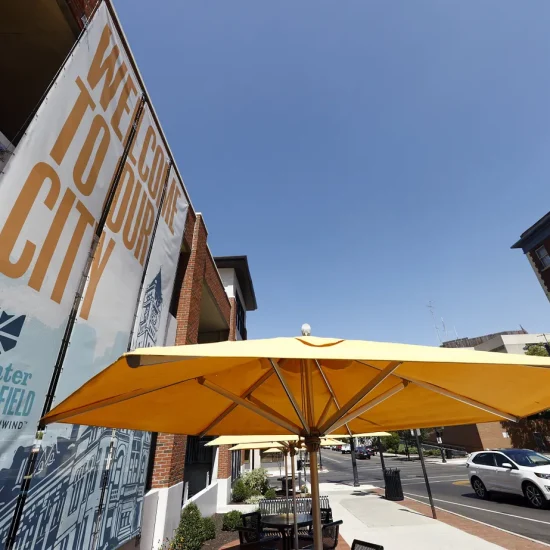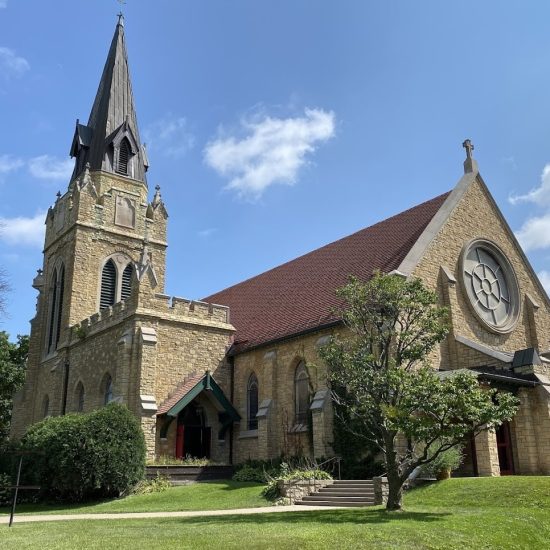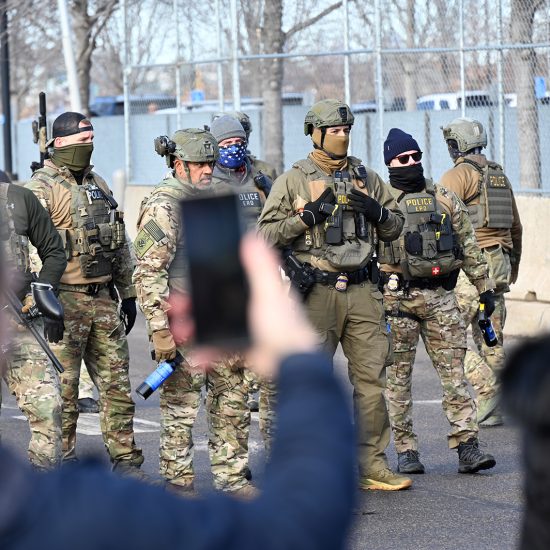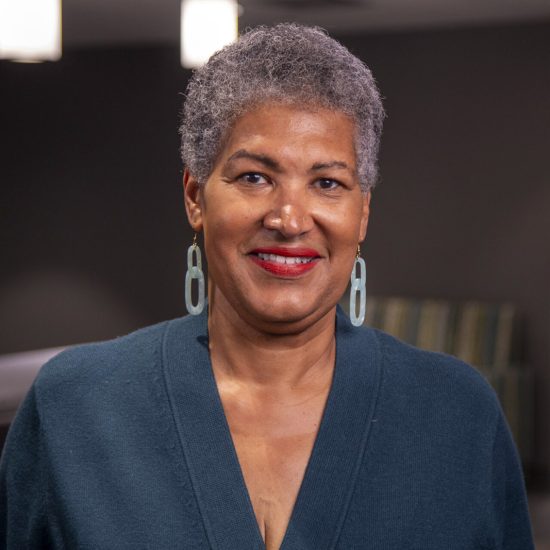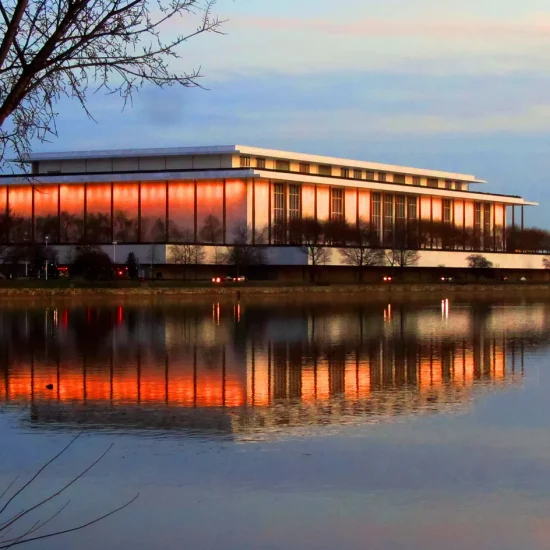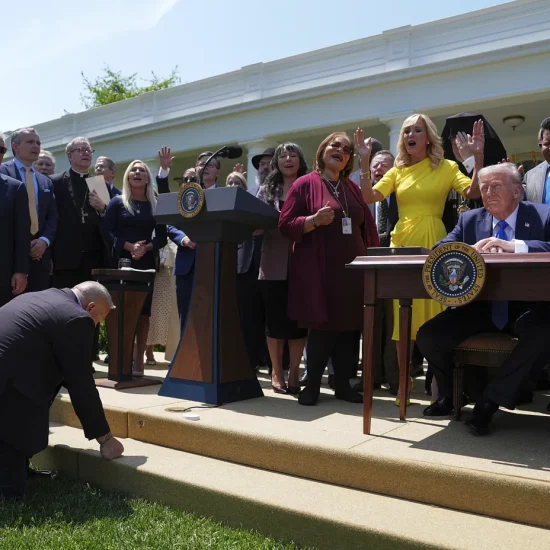DALLAS (BP) — Engaging the topic of unity within the Southern Baptist Convention, Midwestern Baptist Theological Seminary President Jason Allen moderated a panel discussion during the fourth annual For the Church Regional Conference June 12.
More than 1,000 people filled the room to hear a spirited discussion by J.D. Greear, Thom Rainer, Mark Dever, H.B. Charles Jr., Vance Pitman, Noe Garcia and Micah Fries during the SBC annual meeting at the Kay Bailey Hutchison Convention Center in Dallas.
 Midwestern Baptist Theological Seminary hosted a micro-conference June 12 featuring eight panelists discussing contemporary challenges facing Southern Baptist churches. Panelists included (left to right): Thom Rainer, H.B Charles Jr., Mark Dever, Micah Fries, Noe Garcia, J.D. Greear, Vance Pitman and Jason Allen. Photo by Matt MillerAllen queried the panelists on four points: the general state of the SBC’s unity; whether social media can be used in a healthy manner in creating unity; the state of unity in the local church; and whether the denomination should be hopeful about unity.
Midwestern Baptist Theological Seminary hosted a micro-conference June 12 featuring eight panelists discussing contemporary challenges facing Southern Baptist churches. Panelists included (left to right): Thom Rainer, H.B Charles Jr., Mark Dever, Micah Fries, Noe Garcia, J.D. Greear, Vance Pitman and Jason Allen. Photo by Matt MillerAllen queried the panelists on four points: the general state of the SBC’s unity; whether social media can be used in a healthy manner in creating unity; the state of unity in the local church; and whether the denomination should be hopeful about unity.
Fries, pastor of Brainerd Baptist Church in Chattanooga, Tenn., noted two trends he finds troubling regarding unity within the SBC.
“There has been an emphasis on performance over piety,” Fries said. “As a result of this, I feel we’ve lost our moral and ethical center to some degree…. What ultimately results is a lack of Christlikeness in our lives, and particularly in the way we engage with one another.”
Also of concern, Fries said, is that many at the national level engage one another in a way they would never do at the local church level. “We treat each other differently, again, because of a lack of a moral and ethical center that needs to be reclaimed through a commitment to holiness and piety.”
A more personal perspective, said Rainer, president of LifeWay Christian Resources, could get to the root of the issue. Instead of wondering what the denomination or local church might do to address such issues, he noted personal introspection might be the greater need of the day.
“When I begin to ask, ‘God, what would You have me to do?’ about a certain issue, I realize I have so far to go that I don’t have the wherewithal or integrity then to criticize others because I fall so short myself,” Rainer said.
“I wonder what would happen,” he said, “if several million Southern Baptists would simply say, ‘I want to be a Gospel-bearer; I want to be a man or woman of integrity; and I’m going to worry about myself first, and then my church.’ As a result, you’ll see the church and denomination become much happier.”
Garcia, pastor of North Phoenix Baptist Church, thinks of Ephesians 4 when the subject of unity arises. Particularly within the passage, he noted, are the words, “be eager to keep the peace.”
“Unfortunately, we have failed somewhat to do this in the SBC. Here is my fear. It is that the LDS tells a better story than the SBC does,” Garcia said, referencing the Church of Jesus Christ of Latter-day Saints, or Mormons. “We’re doing so much good, but you wouldn’t know it because social media gives ‘feet’ to the bad.
“We’re so concerned about being right on social media that at the same time we disregard the bride of Christ. We have to be more eager to protect the bride of Christ than being right in the SBC.”
Regarding ways social media affects SBC unity, Allen asked if there is a healthy approach to using the medium to convey key messages.
Rainer proposed a three-step process before interacting on social media:
“First, I understand that anything I place on social media becomes permanent,” Rainer said. “Then I ask how I would want to be treated, and lastly I ask if what I’m saying is doing something helpful for the body of Christ.””
Allen said he considers “to whom am I speaking” as a governing principle when interacting on social media.
“I try to treat it the way I would speak to someone in my church. I try not to be shrill, angry or sarcastic when I type it out,” Allen said. “It takes maturity on all of our parts to interact on social media responsibly and to build unity.”
Allen’s third question transitioned to the state of the local church when it comes to unity.
Pitman, pastor of Hope Church in Las Vegas, said he feels there’s a fresh move of God within Southern Baptist churches, especially through church planting.
“The young guys I’m around who are planting churches and have a heart for the mission and engaging the city — who see the church as the tool to engage the city and nations for the Gospel — are a fresh wind. I’m super encouraged [by] the number of baptisms through new churches planted in pioneer areas in America, and it is incredible and amazing to see what God is doing through the SBC.”
Also with a positive perspective, Dever, pastor of Capitol Hill Baptist Church in Washington, D.C., added that over the 25 years he’s been in the nation’s capital, the number of evangelical Christians has increased not just in the SBC but in other denominations as well.
“There are more people in more assemblies where the Gospel is preached every Sunday in the D.C. area than there was 25 years ago. There’s really good news out there,” Dever said.
Wrapping up the event, Allen directed a question to Greear, who pastors The Summit Church in Durham, N.C., and was elected SBC president at the annual meeting. Allen asked, “Why are you hopeful for the SBC?”
Greear responded, “We are seeing in multiple ways that God is moving in the SBC, and he is answering some prayers in ways we might not have expected. I see this as an invitation to respond to God.
“There are some 6,400 unreached people groups,” Greear added. “This means the greatest days of God’s movement are in front of us. I really want to be part of that and I want my kids to be a part of that. I want to see God continue to work through us because the nations are waiting on the Gospel.”
The full panel discussion can be found on the Midwestern Seminary website, mbts.edu.

